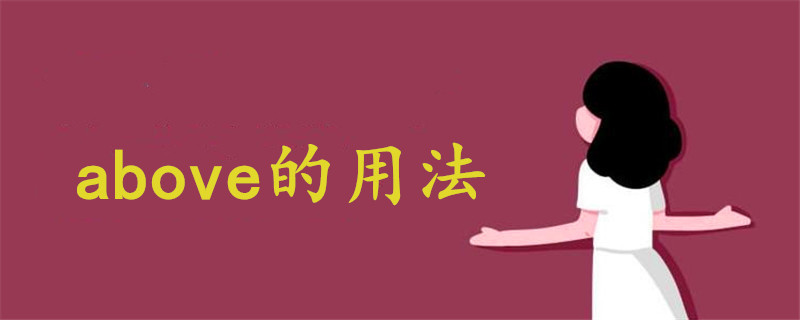above的用法:可作介词,含义为“在…上面”、“大于”;可作副词,含义为“在较高处”、“更多”、“上文”;可作形容词,含义为“前文述及的”、“上述的”;还可作名词,含义为“天上”、“前述”。

above的中文含义及用法介绍
1、作为介词时,意为在(或向)…上面;(数目、数量、水平、年龄)超过,多于,大于;(重要性、质量)超过,胜过。
例句:The water came above our knees.
水淹过了我们的膝盖。
Temperatures have been above average.
气温一直比平均温度高。
I rate her above most other players of her age.
我认为她优于大多数同龄参赛者。
She's not above lying when it suits her.
她在适当时机还是会说谎的。
2、作为副词时,意为在(或向)上面;在(或向)较高处;(数目、数量、水平、年龄)超过,更多,更大;上文;前文。
例句:Put it on the shelf above.
把它放到上面的搁板上。
A score of 70 or above will get you an ‘A’.
70分或以上就可以得“优”。
Several conclusions could be drawn from the results described above...
从上文描述的结果中可以得出几个结论。
As was stated above…
如上所述…
3、作为形容词时,意为前文述及的;上述的。
例句:Please write to us at the above address.
请按上述地址来函。
When you face above things, firstly, you have to know, you must accept the fact.
如果你遇到了上述的事情,首先,你需要知道,你必须接受这个事实。
4、作为名词时,意为上;天上;前述。
例句:The water before bed will serve in the rejuvenation process we mentioned above.
睡前补充的水分,会在上文提到的细胞修复过程中发挥作用。












